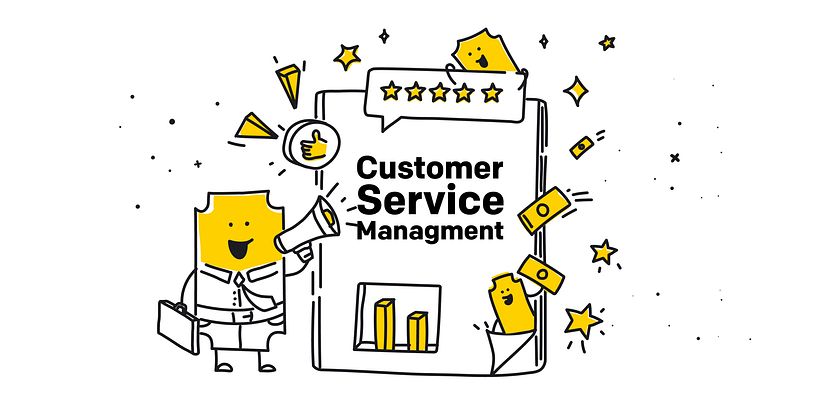Managed Customer Service: The Future of Scalable and Seamless Customer Support

In today’s competitive digital landscape, delivering exceptional customer service is no longer optional — it’s a necessity. As businesses grow and scale, managing customer service operations in-house can become overwhelming and resource-intensive. This is where Managed Customer Service steps in as a strategic solution to enhance efficiency, reduce costs, and deliver a superior customer experience.
What is Managed Customer Service?
Managed customer service refers to outsourcing customer support operations to a third-party provider who specializes in handling customer interactions. These services can include email support, live chat, phone support, social media management, and technical helpdesk services. Unlike traditional outsourcing, managed service providers (MSPs) don’t just offer manpower — they bring in technology, expertise, quality assurance, and strategic consulting to optimize customer service performance.
Key Benefits of Managed Customer Service
1. Cost Efficiency
Hiring and training an in-house support team can be expensive. Businesses need to invest in infrastructure, salaries, benefits, software tools, and training programs. Managed customer service reduces these operational costs by providing a ready-made team of professionals, often at a fraction of the cost of building an in-house department.
2. Scalability
Business needs fluctuate. During peak seasons or product launches, the volume of customer inquiries may surge. A managed customer service provider offers flexibility and scalability to handle such variations without compromising on service quality. You can quickly scale up or down based on your current needs.
3. Access to Expertise and Technology
Managed service providers come with years of experience and industry knowledge. They are equipped with advanced tools such as CRM systems, AI chatbots, performance analytics, and automation platforms. By leveraging this technology, businesses can deliver faster, more accurate, and personalized customer support.
4. 24/7 Support
Today’s customers expect assistance at any time of day, regardless of time zones. With managed customer service, businesses can offer round-the-clock support, ensuring that customer queries are addressed promptly, which boosts satisfaction and loyalty.
5. Improved Focus on Core Business Functions
Outsourcing customer support allows internal teams to focus on core competencies like product development, marketing, and sales. It reduces the distraction and burden of managing support operations, thereby improving overall business productivity.
How Managed Customer Service Works
Here’s a simplified breakdown of how managed customer service is implemented:
- Assessment and Planning: The service provider conducts a thorough analysis of the business’s support needs, existing pain points, customer behavior, and preferred communication channels.
- Onboarding and Integration: Once the scope is defined, the provider sets up the required infrastructure, tools, and processes. Integration with your existing CRM and ticketing systems is performed to maintain continuity and transparency.
- Training and Customization: Agents are trained based on your brand’s tone, products, and service protocols. Custom scripts, FAQs, and workflows are developed to ensure consistency in customer communication.
- Execution and Monitoring: The support operations go live. The provider manages interactions across channels while continuously monitoring performance through KPIs like first response time, customer satisfaction score (CSAT), and resolution rate.
- Reporting and Optimization: Regular reports are shared with clients, and feedback loops are created to continuously improve the quality of service.
Industries That Benefit Most from Managed Customer Service
Managed customer service isn’t limited to one particular sector. It’s widely adopted across:
- E-commerce: To handle high volumes of orders, returns, and inquiries.
- Fintech: For 24/7 assistance with financial services and digital transactions.
- Healthcare: For patient support, appointment scheduling, and insurance queries.
- Telecom: To manage technical support, billing, and service issues.
- SaaS: For onboarding, technical assistance, and subscription management.
Challenges and Considerations
While managed customer service offers several advantages, it’s essential to be mindful of potential challenges:
- Loss of Brand Voice: If not properly trained, outsourced agents might not reflect your brand’s personality accurately.
- Data Security Concerns: Handling sensitive customer information requires robust data protection policies and compliance.
- Quality Assurance: Maintaining consistent service quality requires close collaboration and performance monitoring.
To mitigate these issues, businesses must partner with reputable service providers, establish clear SLAs (Service Level Agreements), and invest in regular training and audits.
The Role of AI and Automation
Modern managed customer service providers increasingly use AI-powered tools like chatbots, sentiment analysis, and self-service knowledge bases to enhance efficiency. These tools reduce the burden on human agents by resolving routine queries instantly and allowing human support to focus on complex issues.
Is Managed Customer Service Right for You?
If your business is growing rapidly, struggling with support response times, or facing customer dissatisfaction due to limited support hours, managed customer service might be the right fit. It allows you to offer consistent, professional service without the overhead of managing a large internal team.
Conclusion
Managed customer service is not just a cost-saving measure — it’s a strategic investment in customer satisfaction, brand loyalty, and business scalability. By partnering with the right provider, businesses can create a seamless support experience that delights customers and drives growth.


Comments
Post a Comment